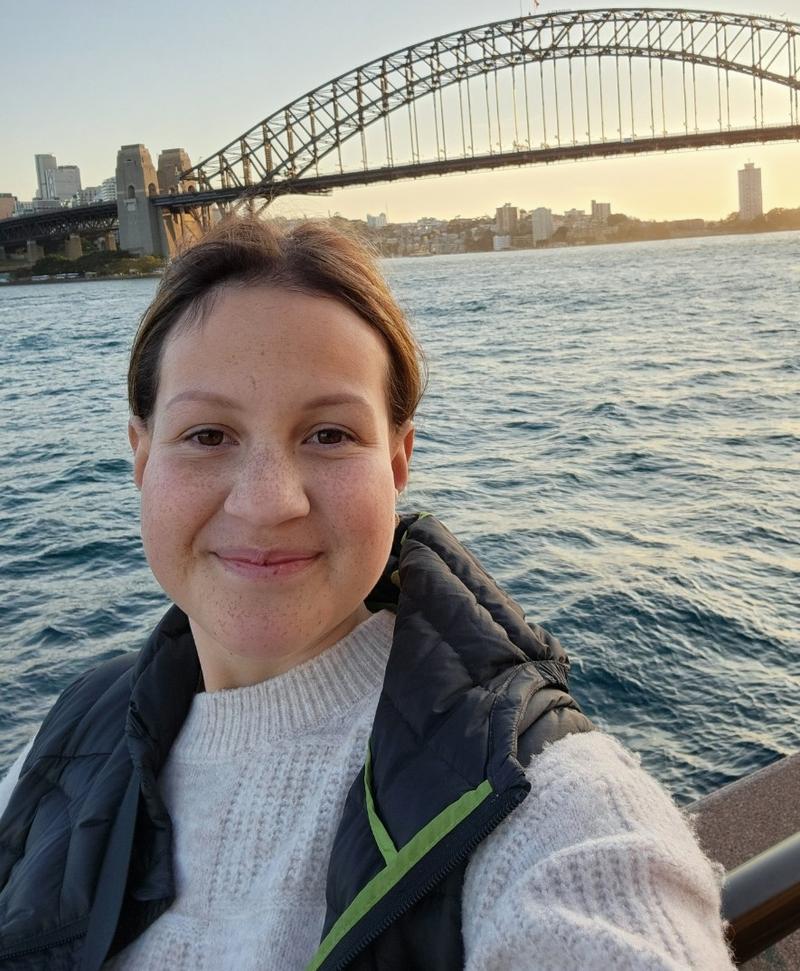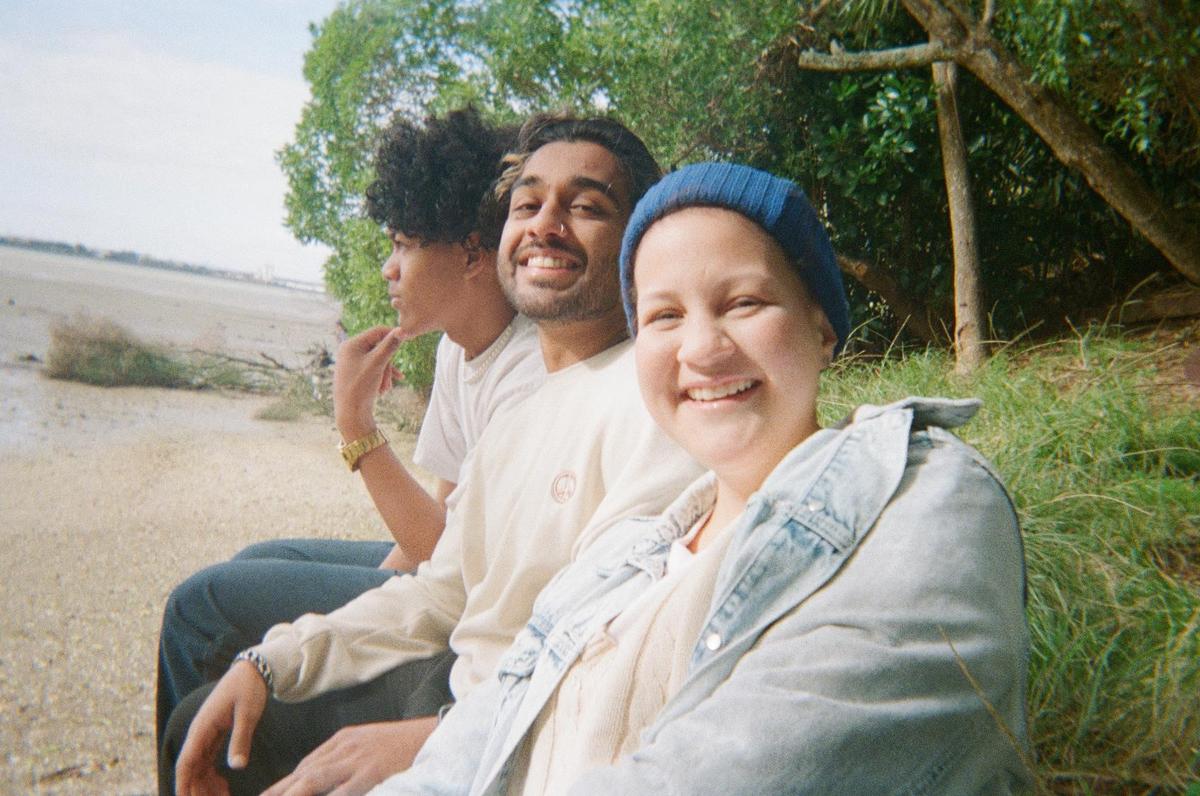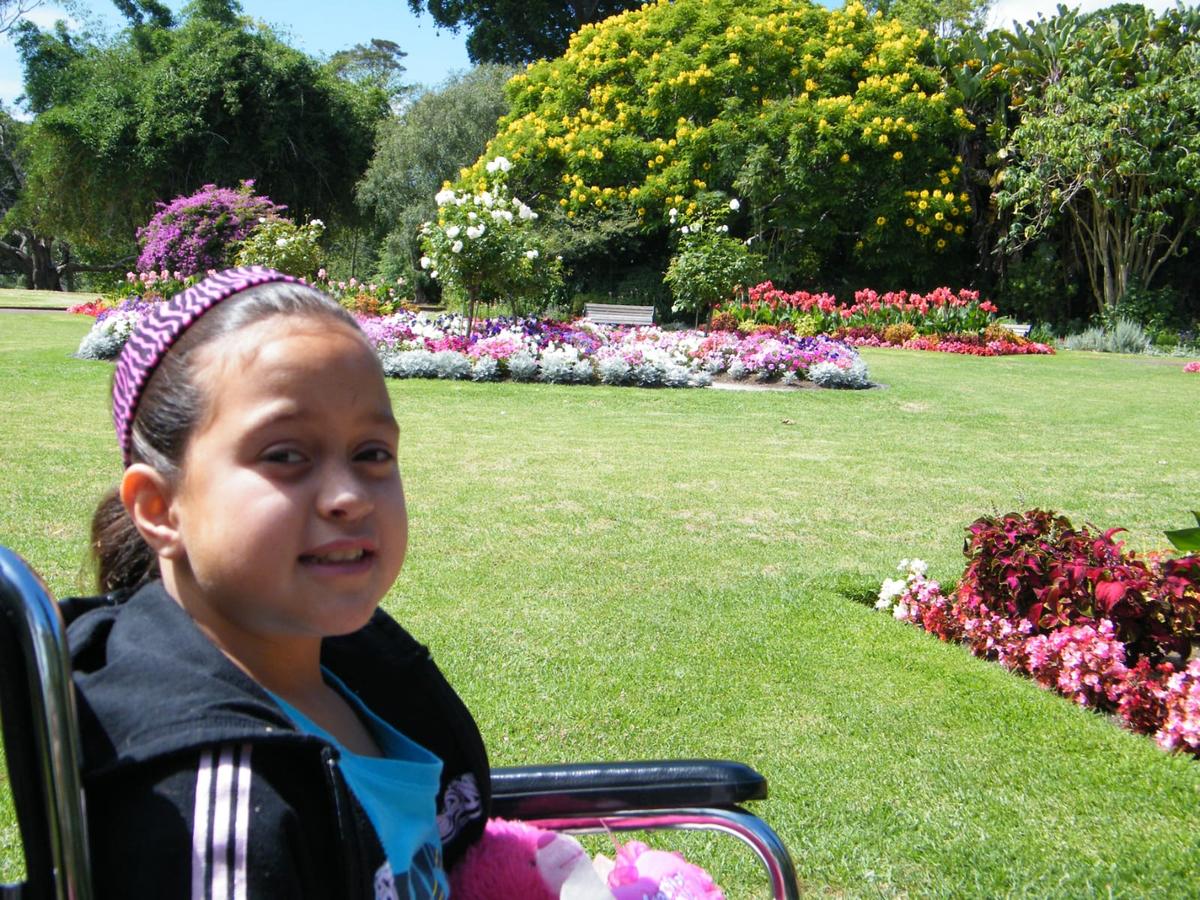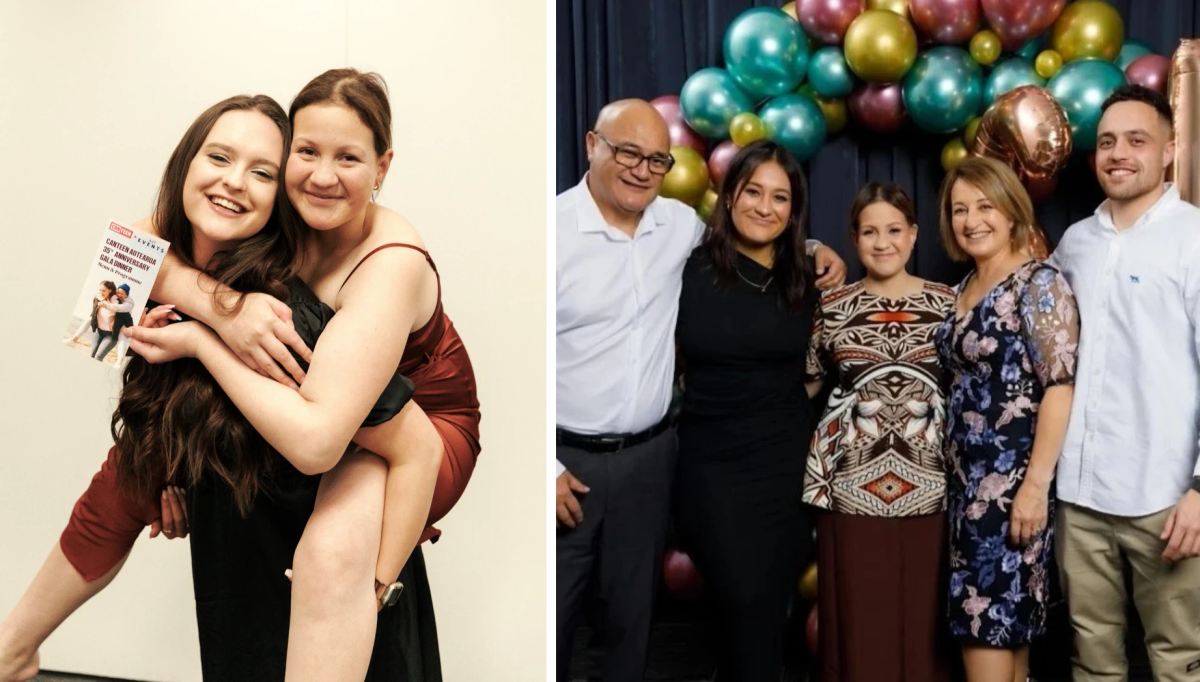Discover
Paige’s story
Paige was diagnosed with a suprasellar brain tumour when she was 8 years old, and was referred to Canteen to gain support and help her feel normal again.


Paige was diagnosed with a suprasellar brain tumour when she was 8 years old.
“I was up north with my family when I started to lose my vision. Mum thought I was playing a trick on her at first because we’d been talking about me needing glasses at the dinner table. However, Mum took me to the hospital soon after and that’s when we discovered the tumour.
“It was sitting on my optic nerve, which was causing me to go blind and have intense headaches.
“My mum was the one who told me I had cancer. My first thought was, ‘am I going to lose my hair?’ and when I found out that I would, I started crying. I didn’t understand what was going to happen and what the word cancer really meant.”


A cancer diagnosis is difficult to process at any age, but for rangatahi, it can present unique challenges, particularly as it can disrupt the most formative years of their lives.
“It was a scary and demanding experience. I had multiple MRIs, lumbar punctures, bone marrow procedures, and underwent numerous rounds of chemotherapy. I also underwent a brain surgery to deflate and remove the tumour. It was really invasive because it was all done via my nasal passage.
“On top of this, I had 29 rounds of radiotherapy to my brain and spine to ‘mop’ up any cancer cells, this involved little dots being tattooed down my head and back so the medical team could line up the machine, whilst I lay on my stomach for more than an hour with my head encased in a plastic mould.
“All these treatments caused me to feel nauseous, lethargic, and lose my appetite, amongst other things. I had ongoing treatment for a year, and to this day I still have to take multiple medications – almost 15 years after I was first diagnosed.”


Rangatahi managing a cancer experience can face additional challenges, including dealing with continuing school after treatment and physical changes. This can be an exceptionally lonely time for rangatahi, as they may not have a support system that understands what they are going through.
“Before treatment, I was an active little girl who was flexible, tried every sport, and did athletics daily, but during treatment I had to take steroids and my body quickly changed. After treatment, I couldn’t do many of the things I’d loved doing anymore.
“I also lost my long hair, and I couldn’t plait it or put it up in a ponytail like other girls my age, which I struggled with a lot. I had a bald head.
“I felt lost and had no one around me who could really understand what I was going through.”
Our Clinical Team works with rangatahi to help them manage not only issues related to a cancer diagnosis but also those that come about due to the life stage rangatahi are at.
“When I was 13, I was referred to Canteen for support. It was so helpful to connect with Canteen staff and other rangatahi who could relate to my experience and understand what being poked and prodded felt like. It helped me realise I wasn’t alone, I had support, and helped me feel normal again.
“Even just sitting down and having a chat with others, it made a difference. My Youth Worker called to check in and visited me in person. It really helped my mental health.”
“My siblings also got support from Canteen, which helped them understand what ‘having cancer’ meant and gave them a space to have a distraction from cancer by joining events.”


Canteen’s programmes and camps give rangatahi some much-needed space away from the daily pressures of being impacted by cancer.
“The events and camps also helped me to connect with other rangatahi. One of my favourite events with Canteen is the annual CanSurf weekend away. I really love this weekend as Canteen members come together and listen to each other, relating to each other’s experiences, and just have a laugh - it helped me not feel so lost. And of course, the amazing experience of learning how to surf!
“Canteen has provided me with opportunities to make long-lasting friendships, realise my leadership potential and nurture my confidence to be the best person I can be.”